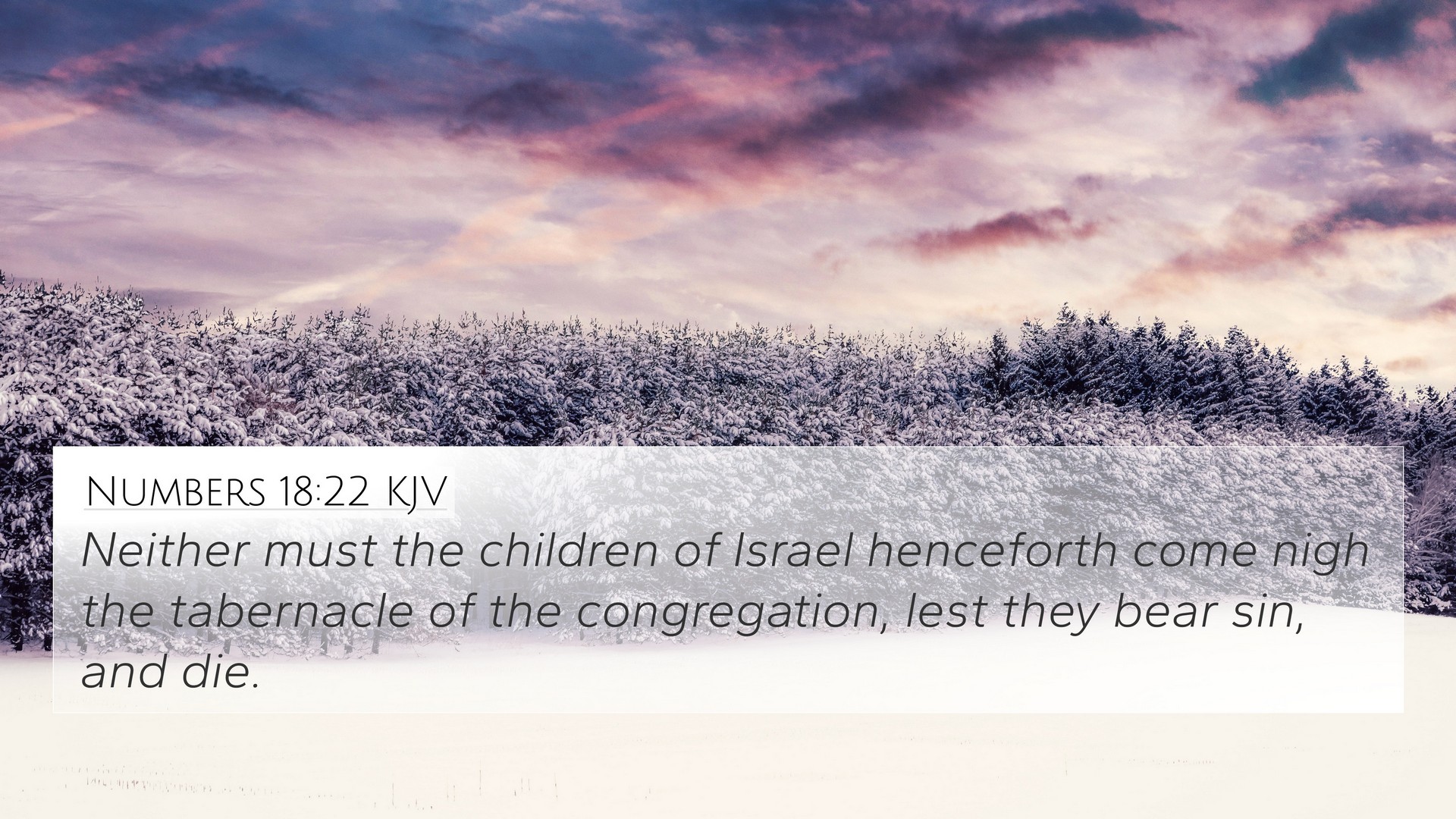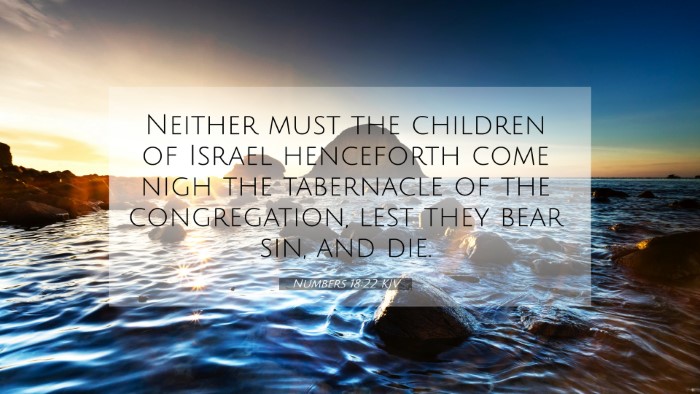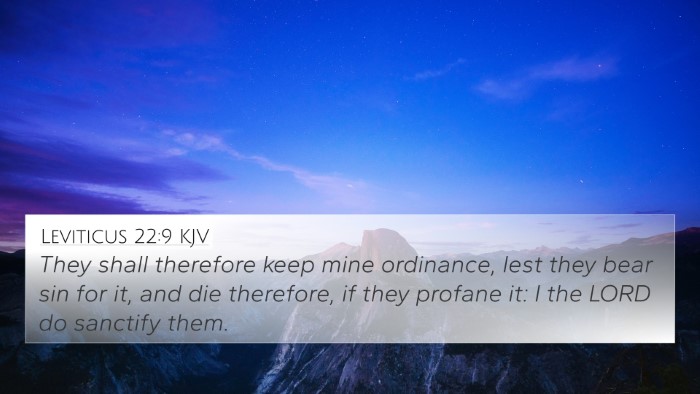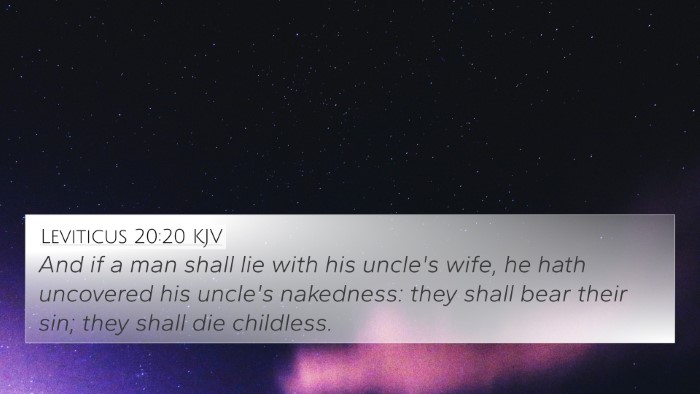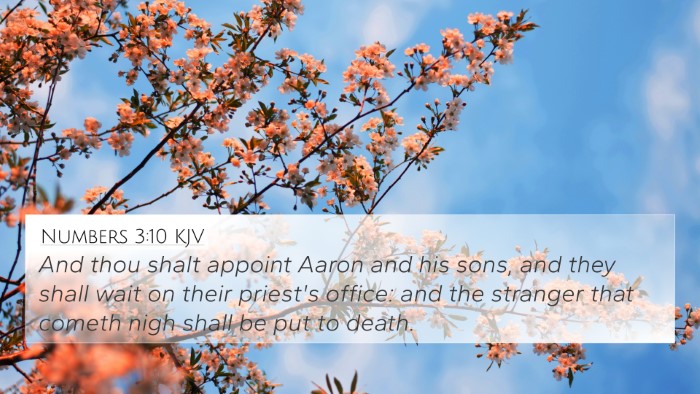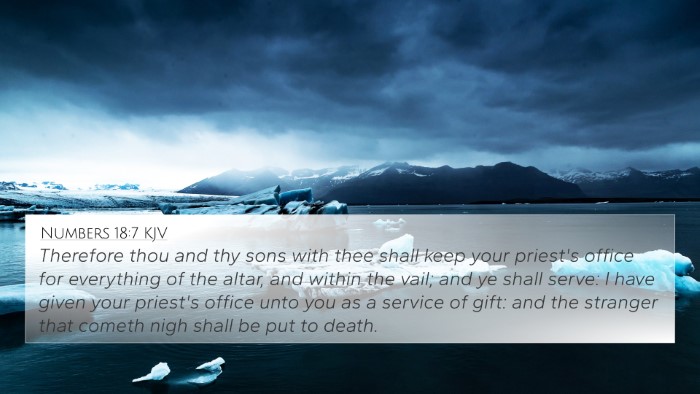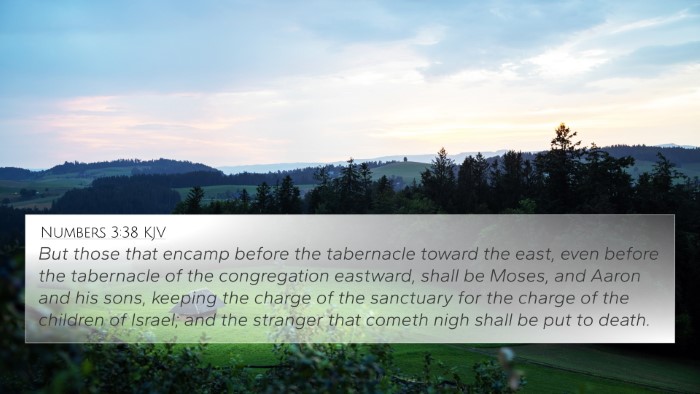Understanding Numbers 18:22
The verse Numbers 18:22 states: "Neither must the children of Israel henceforth come nigh the tabernacle of the congregation, lest they bear sin, and die." This verse is significant in understanding the responsibilities of the Levitical priesthood and the special nature of the relationship between God and His chosen people. Below, we draw insights from various public domain commentaries to provide a comprehensive understanding of this passage.
Contextual Overview
In the book of Numbers, God gives detailed instructions regarding the governance of the Israelite community, especially about the priesthood and the tabernacle. This text emphasizes the exclusive role of the Levites in ministering before God, highlighting the serious consequence of approaching the sacred space without proper authorization.
Commentary Insights
- Matthew Henry:
Henry emphasizes the sanctity of the tabernacle and the severe consequences of disrespecting God's holiness. He notes that the Israelites were forewarned that approaching the tabernacle without authorization could lead to death, illustrating God's jealousy for His holiness.
- Albert Barnes:
Barnes elaborates on the necessity of the Levitical tribe's mediation between God and the Israelites. He discusses that this prohibition serves to maintain the distinction between the sacred and the common, reinforcing the notion of holiness in worship and service to God.
- Adam Clarke:
Clarke points out that this directive not only served as a directive for order but also emphasized the serious nature of divine judgment. He encourages readers to reflect on the gravity with which they should approach matters of worship and divine service.
Deep Dive into Significance
The message of Numbers 18:22 is timeless, teaching believers the importance of reverence in spiritual matters. The prohibition against approaching the tabernacle represents a broader theme of how humanity needs a mediator to connect with God, foreshadowing the ultimate mediation through Christ as professed in the New Testament.
Bible Cross-References
- Exodus 19:12 - God's instructions regarding boundaries around Mount Sinai.
- Leviticus 16:1-2 - The protocols surrounding the Day of Atonement.
- Hebrews 12:28-29 - The importance of reverently approaching God's presence.
- 1 Peter 2:9 - A royal priesthood called to declare God's praises.
- Romans 5:1 - Peace with God through our Lord Jesus Christ.
- Mark 15:38 - The tearing of the temple curtain at Jesus' death, symbolizing access to God.
- Hebrews 10:19-22 - Confidence to enter the Most Holy Place through Jesus' sacrifice.
Thematic Connections
Numbers 18:22 calls attention to the themes of holiness, mediation, and worship which interconnect various parts of Scripture. The verse reveals connections between Old Testament law and New Testament grace, where adherence to God's commands was critical in Israel's covenant community, just as faith in Christ fulfills the law for believers today.
Cross-Referencing Biblical Texts
By using tools like a Bible concordance or a cross-reference guide, readers can explore the interconnectedness of biblical texts. This verse serves as a critical reference point for understanding God's nature and His expectations of holiness from His people.
Concluding Thoughts
In summary, Numbers 18:22 offers a penetrating insight into the fear of the Lord that is needed when engaging in worship and service. The careful restrictions placed upon Israelites illustrate God’s holiness and the utmost seriousness that should accompany our approach to His divine presence. The study of this verse, alongside its biblical cross-references, paves the way for deeper reflection on God's nature and His enduring covenant with His people, both in the Old and New Testaments.
